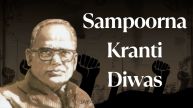In a time when individuals are living by titles, fashions, and momentary fame, there are those quietly emanating with values, actions, and intention. Maharaja Padmanabh Singh of Jaipur, for instance, has found the heart-warming moniker Pacho, one whose name shall resound not just within palace entrances but upon global arenas of sport, culture, and humanity.
The one to be known for principle and not privilege, however, it is the case of Pacho that is lived fully. A young man who began his early twenties in the year 1998, he bears on his shoulders the heavy mantle of history of the Kachhwaha Rajput dynasty with ringing
Pacho’s mother is Princess Diya Kumari, who is a politician and a member of the Rajasthan Legislative Assembly. On the other hand, his father is Narendra Singh, who is a commoner. Diya was her parents’ only child, so her son, Padmanabh, had become king after his grandfather’s death. He was only 12 when he was proclaimed Titular Maharaja of Jaipur in a ceremonial ceremony in 2011.
But rather than have a sense of entitlement bred from him, Pacho had humility. His education was rigorous, from the Mayo College in Ajmer, which specializes in cultivating noble leadership, to England’s Millfield School, and lastly, LUISS University in Rome, where he took up liberal arts and cultural heritage. Pacho is multilingual and well-versed in world history, Indian heritage, and the burden of legacy.
An International Polo Star with Heart
While the majority of royals blend into ceremonial duties, Pacho made his presence felt on the polo arena, earning respect, rather than applause.
As one of the young members of India in the Indian Polo Team, he has represented India at international polo tournaments in Argentina, the U.K., and the U.S. At the age of 18, he took the Indian national team to England and became a role model for Indians. He plays with dedication, sportsmanship, and discipline, all thanks to his upbringing.”.
Through polo, he brings heritage sports to light and leverages his platform to promote animal welfare and grassroots sporting development. For Pacho, sports aren’t games they’re threads that connect cultures, individuals, and character.
A Humble Ambassador of Culture and Heritage
Even gracing the cover of GQ, Vogue, and strutting the red carpets of fashion shows from Milan to Paris, Pacho is modest to a fault. Time and again, he affirms that he does not regard himself as a “celebrity” but a “custodian of heritage.”
He’s made bold moves to renovate and preserve the Jaipur City Palace, redefining it as a living museum that invites the world to a harmonious mix of Rajasthani opulence and contemporary storytelling. In his modest reign, the royal family’s property empowers local artisans, sustains education programs, and upholds the royal family’s legacy of philanthropy.
He wears traditional Rajasthani attire as proudly as a modern suit. He talks about his ancestors with the highest respect. He mentions the importance of culture, humility, sustainability, and service repeatedly and demonstrates to the world that royalty today is not a matter of commanding others, but of serving the cause.
Pacho’s Message to the World
Pacho does not often deliver public orations, but his life is itself a message. He speaks for mental health, inspires young people to remain rooted in their heritage, and remains steadfast in his conviction that leadership in the modern age is the offspring of empathy, not domination.
In the digital age when bombast often clouds content, Pacho is a soft-spoken man with profound influence, a testament that humility, compassion, and honesty still move.
A Royal With a Real Heart
Padmanabh Singh or Pacho would not like to be remembered as a king, but as a symbol for Jaipur, for India, and for a common mankind that retains its heritage and goes ahead.
He does not command armies, but he commands respect. He does not make headlines for entertainment, but for substance, and maybe that is the reason why he is not only a Maharaja by name but a model for our times.











